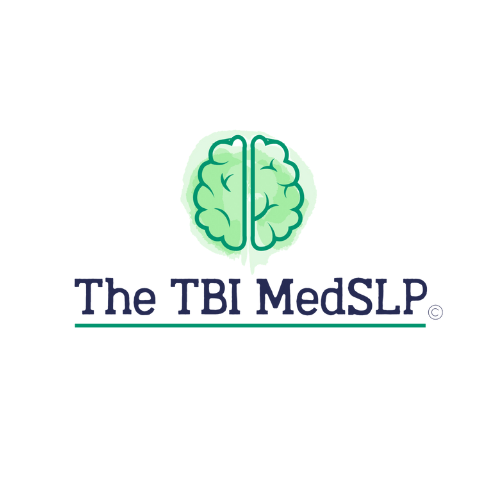Traumatic Brain Injury Recovery: Speech Therapy Role in Rehabilitation
In one study, 73% of rehabilitation patients with a TBI that saw a speech language pathologist (SLP) were identified as having a cognitive communication impairment. Now, let's change that statistic.
Speech therapists are more than rehab professionals. They are a lifeline, a beacon of hope.
Speech language pathologists (SLPs) play an increasingly important role in helping traumatic brain injury patients recover and return to their daily lives. Patients often experience difficulty with communication and language processing. In response to this, speech therapists have become an integral part of every TBI patient's treatment plan. The ability to communicate is essential to an individual's success in school, work, and personal relationships, and a speech therapist can help bridge the gap between the patient and their goals.
Speech therapists specializing in traumatic brain injury (TBI) treatment can help a patient relearn language, process, and interpret language, and even adjust to life with a TBI. Through a variety of techniques such as speech and language therapy, cognitive therapy, and physical therapy, patients can improve their ability to communicate, increase their understanding of language, and even regain some of their independence. Speech therapists provide patients with the strategies, support, and resources they need to rebuild their cognitive and communication skills. Through a combination of verbal and non-verbal means, speech therapists can help TBI patients relearn and practice the skills they need to communicate effectively.
Speech therapy services for TBI patients can involve
Speech
Language
Cognition
Voice
Swallowing
Social skills retraining
Conventional wisdom says fall seven times, stand up eight. But, what if the real challenge is finding your voice again?
SLPs help individuals improve their social skills, reduce stress and anxiety, and gain a better quality of life. Speech therapists help patients practice communication skills and achieve their goals of speaking clearly, reading, writing, and comprehending. They also work on cognitive communication impairments including problems with:
Attention
Memory
Problem Solving
Executive Dysfunction
Insight and awareness into deficits
Speech therapists also provide support and guidance to help them adjust to life with a TBI. Additionally, speech therapists provide important support to family members of TBI patients. They can provide essential resources and information to help family members navigate the complexities of caregiving. They also offer guidance and emotional support when needed. By offering a unique and essential service to TBI patients, speech therapists are an integral part of the rehabilitation process for this population. Their work helps these patients to recover from the physical and cognitive effects of the injury, and to gain greater independence and a better quality of life.
Speech therapists work closely with other healthcare professionals, such as neurologists, neuropsychiatrists, and physical, occupational, and recreational therapists, to create a tailored rehabilitation plan for each TBI patient. This plan may include helping the patient to relearn language and communication skills that were lost or weakened due to the injury, as well as finding new ways to help the patient to adapt to any physical or cognitive changes resulting from the injury.
TBI patients have unique needs and challenges that speech therapists are specially qualified to address. Speech therapists are essential in helping TBI patients reach their goals and return to their daily lives. With the right support, speech therapy can make a meaningful difference in the lives of TBI patients.
SLPs: Imagine this: your patient, once silenced by a traumatic brain injury, finally breaking through the invisible barrier. Their first word? A resounding "Thank you."


